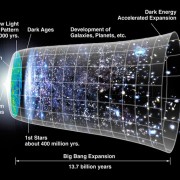Not so finely tuned theist arguments for a god
I’m a new writer here, and I’m a physicist, and we scientists always react to theists trying to use the findings of our field to argue for a god by noticing their arguments get the science wrong. One of the most popular attempts of that sort nowadays concerns the “fine tuning” of physics, so my first piece here will debunk that argument. The claim is the parameters that appear in the laws of physics – theists incorrectly call them “constants” (more on that later) – would almost certainly render life in our universe impossible if they were determined randomly rather than by God, and the argument for almost all values for the parameters being bad for life is that, if you change the values of our own universe ever so slightly, they become bad. Some arguments for a god have so many different reasons they’re wrong you could write prolifically just going through them, and this is one of the best examples of this, right up their with the Kalam cosmological argument. So I’ve only time to go through a tiny minority of why it fails. If you want to learn more, I recommend you read The Fallacy of Fine Tuning, an entire book Victor Stenger recently wrote on the subject – and even there you won’t get the full set of reasons the argument fails.
Consider a set of values for the parameters in the laws; you can think of them as the Cartesian coordinates of a point in a multidimensional space, said point being the nature of our universe while other points are what could have been. Colour a point black if it’s good for life and yellow if it’s not, so the good regions are like holes in cheese. The probability a randomly selected point is black is, according to the theists, extremely small (although that would say nothing about the odds a selection was random just because the point was black; P(A|B) and P(B|A) are unrelated numbers). Why do they think that? Because if you travel parallel to any one Cartesian axis through the black region we’re in, you soon hit yellow. That means our black region is small. But the probability that a randomly selected point is black is the fraction of the volume of the “cheese” that is a “hole”, and if there are many other holes that could be appreciable. Victor Stenger is one of numerous researchers who’ve measured that fraction by a much better technique, that of randomly allowing simultaneous variation of the parameters across many orders of magnitude to see how often a point is healthy. In the case of his MonkeyGod program, such research goes back about 20 years. And all such studies have shown the odds of life being possible are pretty good.
As one last point, the parameters aren’t constants. For example, couplings as we physicists call them (they measure the relative strengths of fundamental forces) depend on the energies of particles, so they gradually change as the universe ages and cools, and some evidence suggests the related fine structure “constant” might have changed as the universe aged too. When you take this variability of parameters across space and time into account, that our universe would end up supporting life in some region of space for a few billion years isn’t the least improbable, especially when you bear in mind the fact that the inflation shortly after the Big Bang allowed far–apart parts of the universe to differ even more in their parameters.

